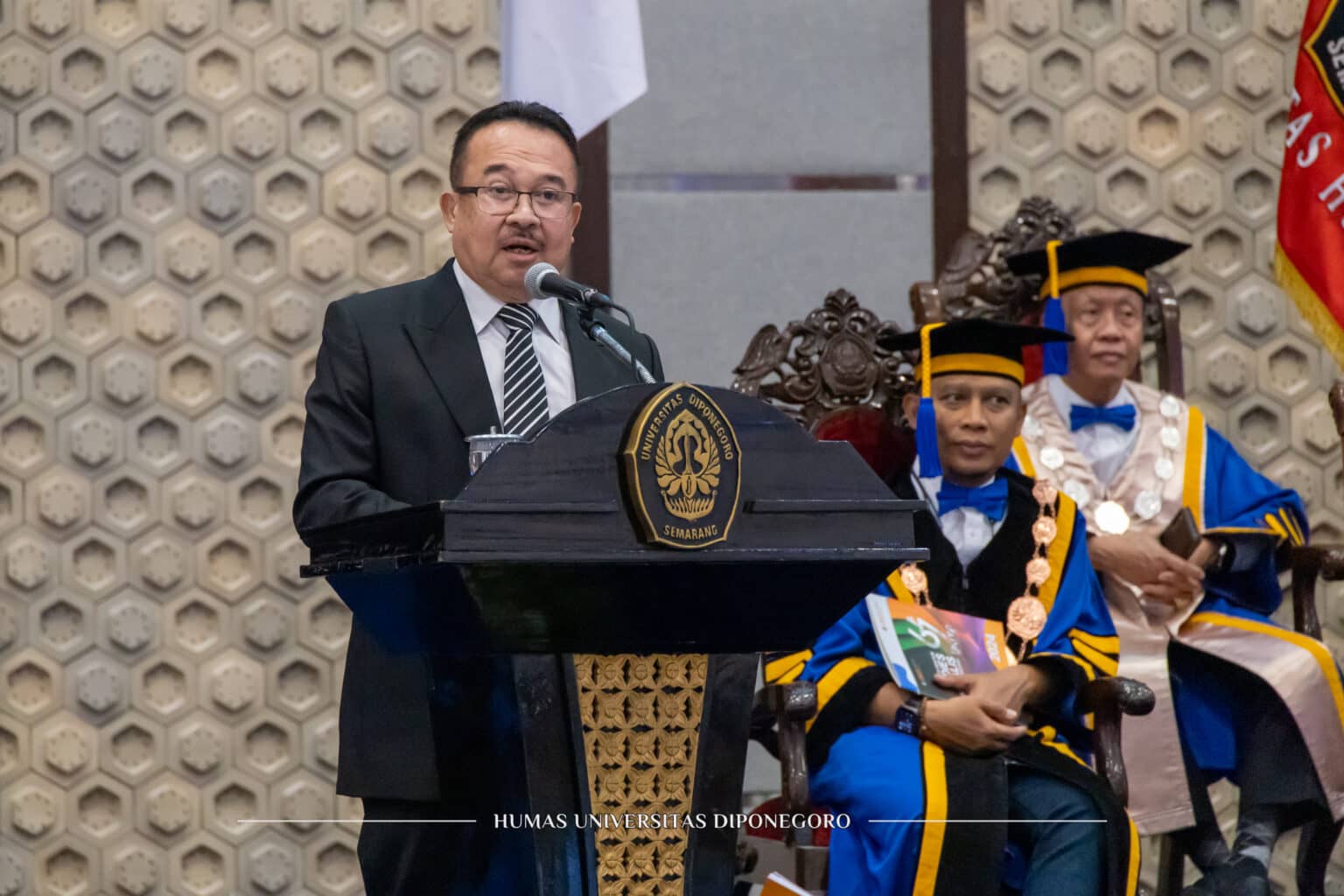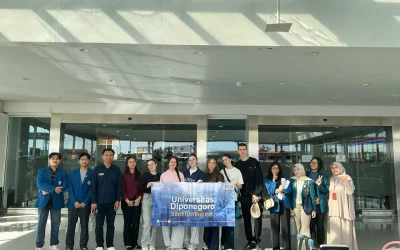SEMARANG – To mark its 67th Anniversary, Diponegoro University invited Prof. Rhenald Kasali, PhD, to deliver a scientific oration entitled “Pembangunan Sumber Daya Manusia yang Unggul dalam Upaya Pengentasan Kemiskinan dan Ketahanan Pangan” at Muladi Dome Undip Tembalang Campus on Tuesday (15/10/2024).
Prof. Rhenald Kasali highlighted the generation gap, a challenge for universities in producing superior human resources. Although today’s children are said to be digital natives, according to him, the current generation has a poor attitude. Conversely, the previous generation had a good attitude but was not categorized as digital natives. Universities that not only teach but also educate students to have good character need to note this.
According to BPS (Badan Pusat Statistik), 9.9 million teenagers have no education, training, or employment opportunities. This means there are still young people today with out-of-date skills, no training, and a bad attitude. They are just happy to participate in online games and other similar activities. However, there are also new generations who have the ability to work as entrepreneurs independently despite having no formal education. They often choose to leave their jobs. Here, universities must take a role in the exchange of knowledge and expertise in order to give birth to a superior new generation.
Prof. Rhenald Kasali hopes that the old and new generations can collaborate to produce human resources with high expertise and productivity. He also hopes that universities will focus on shaping students’ productive work ethic.
The trend of flexible work was also conveyed by Prof. Rhenald Kasali, who sees that today’s productive young generation needs a balanced job, such as providing work wages based on the workload but still by the passion they like. Therefore, it is necessary to encourage innovations to support the work atmosphere. This also relates to poverty alleviation.
Another issue is food. Currently, 8.3 billion people live on Earth, which should only be inhabited by 3 billion people, meaning that food issues are serious. The land area on Earth is only 30%, and the other 70% is the ocean. Some parts of the land are uninhabitable, such as deserts, forests, or areas that must be protected. In addition, the culture of agriculture is also starting to decline, with the average farmer being old. Unfortunately, D1 and D2 graduates in the village prefer to work outside the agricultural sector, so the plantation and agricultural sectors have difficulty finding workers.
The problem of human resources among young people is a problem for all of us. This means that many companies and institutions face difficulties in finding workers or employees with the necessary skills. As a result, many HR needs are not met. Universities are responsible for teaching students to think critically, not memorize formulas, but the ability to think critically, experiment with new things, and so on.
(Citra Safira)





0 Comments